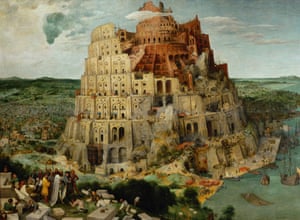
Foreign correspondents help readers to pass through language barriers. Using their own language skills and those of interpreters, journalists gather and present to us accounts of people from whom language would otherwise separate us.
When media in other countries find Guardian exclusives newsworthy they sometimes report the essence of them in other languages for their own audiences.
In the aftermath of the truck attack last 19 December at an open-air Christmas market in the German capital, the Guardian’s Berlin correspondent, Kate Connolly, obtained an exclusive interview with the man police arrested near the scene soon after the attack, questioned and then released.
Naveed Baloch, 24, was not the attacker. He is an asylum seeker from Balochistan, population about 13 million, largest province of Pakistan, bordering Afghanistan. Connolly interviewed him through a Balochi-speaking academic who resides in Europe. She tells me her interpreter had good English and there was time in the three-hour meeting to go back over details to check.
For clarity, I am going to use Naveed’s first name only.
In the interview Naveed described his arrest, experience in custody and release by Berlin police to a secret safe location rather than the refugee shelter where he had been living. It covered his political activity for Balochi independence, efforts to elude Pakistani security forces, a refugee journey through Iran, Turkey and Greece to Germany, and his fears for his safety and that of his family back home.
The Guardian article had three main points about his arrest and custody:
• He recalls two police officers “digging the heels of their shoes into my feet”, and one of the men “putting great pressure on my neck with his hand”.
• They [police] undressed him and took photographs. “When I resisted they started slapping me.”
• While in custody, he said, they only gave him tea and biscuits. “But I could not eat. The biscuits were disgusting, and the tea was cold.”
The interview was published on 29 December and quickly the German media carried accounts which prompted a furious reaction from Berlin police. Connolly and the Guardian were criticised, with reports suggesting that quotes had been fabricated. Police separately questioned Naveed about the Guardian interview and were quoted as claiming that he had told them words were put into his mouth.
Connolly and a Guardian colleague initiated a long meeting with Berlin police to understand their concerns, and met again with Naveed. After talking with Connolly, asking for Naveed to be taken again through the published interview, and separately talking with Berlin police, I have concluded that Connolly’s work was sound.
Chief Superintendent Winfrid Wenzel, the police spokesman who figured in several German reports critical of the Guardian article, told me that police have no complaints about its fairness and accuracy. “There is no blame or criticism of the Guardian,” he said. Naveed has affirmed in writing that the article is a fair and accurate account of the interview.
Wenzel explained that the police were concerned that the German media reports of the Guardian exclusive had created a false impression that Naveed had been subjected to undue force and detained too long. Wenzel said the force that police used had been legally justified; Naveed had been released after 23 hours in custody – within the 24-hour limit beyond which a judge’s order would have been required.
The undressing was necessary to check Naveed’s body for the gunshot residue or blood or injuries likely to have resulted from the attacker’s struggle with the murdered truck driver. Wenzel said procedure permitted hands to be slapped away if a suspect obstructed photography by, say, raising hands to face.
Some German media reports had translated “slapped” as geschlagen, which can mean slap but also struck, hit, beaten, punched. Ohrfeige, also used in German media, means a box around the ears.
It was also permissible, Wenzel said, for police to use their feet to spread a suspect’s legs wide, hence the heels. Holding a suspect firmly at the neck in transit was part of a procedure to prevent self-harm. Wenzel referred to a police record of when Naveed had been offered a type of dry bread, margarine and cheese. The record noted that he had not eaten much.
This episode is a lesson in the fragility of translation. Reporting from Babel, so to speak, is hard.
Naveed’s words in Balochi to an interpreter went into English for Connolly’s interview, and from her article on into German for the local media’s readers.
In translation from English to German, the Guardian article seems to have been cited in ways that gave the impression that Naveed was treated by police __more harshly than he was. Connolly agrees. She also points out that he may have been confused about how long he was in custody because the formal transition from custody to release may have been unclear to him. When police took him to the secret residential location, they advised that he not move without informing them – for safety reasons, not because he was still in custody. The issue has now been noted in the article online.
When Naveed was interviewed by police he heard their questions from an Urdu-speaking interpreter, who gave Naveed’s answers to police in German. Naveed told Connolly he understands a bit but cannot speak much Urdu. Wenzel said police had been unable initially to obtain an accredited Balochi-speaking interpreter within the time available.
When police reinterviewed Naveed they were assisted by an Iranian man with whom Naveed could communicate in Persian, a language closer to Balochi than Urdu.
Wenzel and I spoke by phone, partly through an interpreter. I hope I’ve reported him accurately.